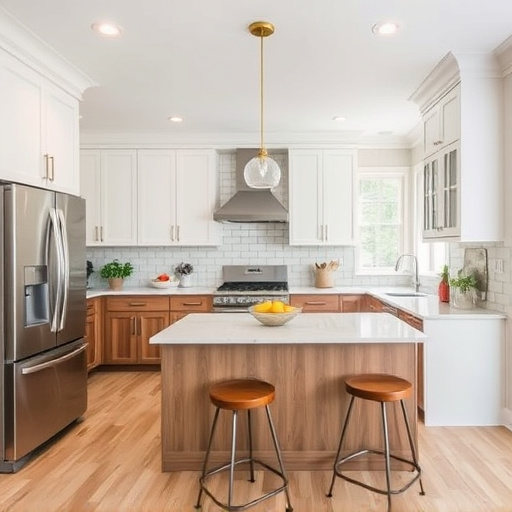Kitchen renovations require meticulous planning and coordination. This involves multiple stages from design to finishing touches, with key tasks like electrical and plumbing before cabinet installation. Working with a professional designer optimizes space and aesthetics. Strategic planning includes defining objectives, understanding budget, using tools for task management, staying organized, and managing delays. Effective communication and flexibility are crucial for success, avoiding common pitfalls and ensuring a stunning new kitchen within budget and on time.
Looking to transform your kitchen without the stress? Effective project timelines and planning are key to seamless renovations. This comprehensive guide breaks down every aspect of successful kitchen renovation projects, from understanding project scope to managing delays. We explore essential tools, resources, and strategies to ensure a smooth, efficient process. Discover how to avoid common pitfalls and create the kitchen of your dreams with confidence.
- Understanding Kitchen Renovation Projects: A Comprehensive Overview
- Key Components of Effective Project Planning
- Choosing the Right Tools and Resources for Timely Execution
- Strategies for Staying Organized and Managing Delays
- Common Pitfalls to Avoid for Seamless Renovations
Understanding Kitchen Renovation Projects: A Comprehensive Overview
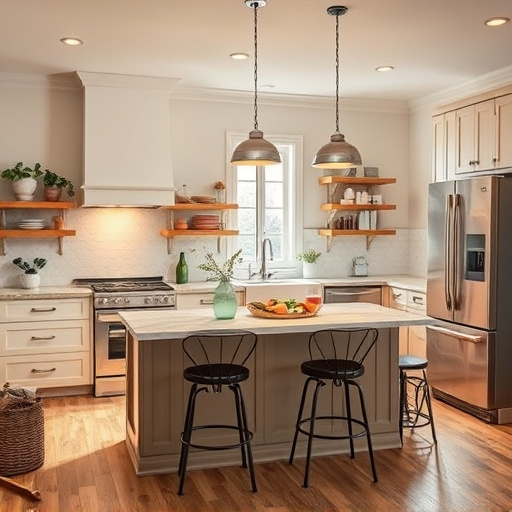
Renovating a kitchen is often considered one of the most transformative and exciting home improvement projects. It’s a chance to create a space that truly reflects your style and meets your family’s needs. However, it can also be complex and demanding, especially for those new to renovation projects. To ensure smooth sailing, understanding key aspects of kitchen renovations is essential from the outset.
A comprehensive kitchen renovation typically involves several interconnected stages: design, demolition, plumbing and electrical work, cabinet installation, countertop selection and fitting, appliance placement, tiling or flooring, and finally, finishing touches. Each phase requires careful planning and coordination. For instance, electrical and plumbing work must be completed before cabinets are installed to ensure all connections are secure and functional. Additionally, understanding the space’s layout and working with a professional designer can help maximize storage and flow, ensuring your new kitchen is both aesthetically pleasing and practical.
Key Components of Effective Project Planning

Effective project planning for kitchen renovations involves several key components that ensure a smooth and successful transformation. Firstly, defining clear objectives is essential; this includes understanding the client’s vision, budget constraints, and desired outcome. A detailed scope of work should be established, outlining specific tasks, materials required, and potential challenges. Time management is critical; creating a realistic timeline with milestones allows for better organization and facilitates progress tracking.
Resource allocation plays a significant role in successful kitchen renovations. Adequate planning ensures the availability of skilled labor, high-quality materials, and necessary equipment. It’s wise to allocate resources considering the project’s complexity, allowing flexibility for unforeseen issues. This proactive approach guarantees that the renovation stays on track, within budget, and meets the client’s expectations, resulting in a stunning new kitchen.
Choosing the Right Tools and Resources for Timely Execution
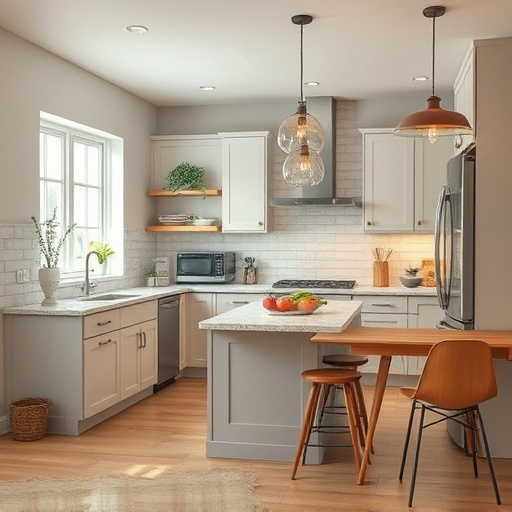
When embarking on kitchen renovations, selecting the right tools and resources is paramount for a timely and smooth process. This involves more than just gathering materials; it’s about leveraging efficient planning software and organizational methods to stay on top of project timelines. For instance, digital scheduling apps can help manage tasks, set deadlines, and coordinate with contractors, ensuring that every step from demolition to installation moves forward without delay.
In the realm of kitchen renovations, where precision and efficiency are key, utilizing cloud-based document storage and collaborative platforms facilitates seamless communication among all project stakeholders. This ensures that everyone is aligned on design choices, material specifications, and delivery schedules, minimizing backlogs and delays. With the right tools in place, transforming your kitchen becomes a well-oiled machine, resulting in a beautiful, functional space without unnecessary hassle.
Strategies for Staying Organized and Managing Delays
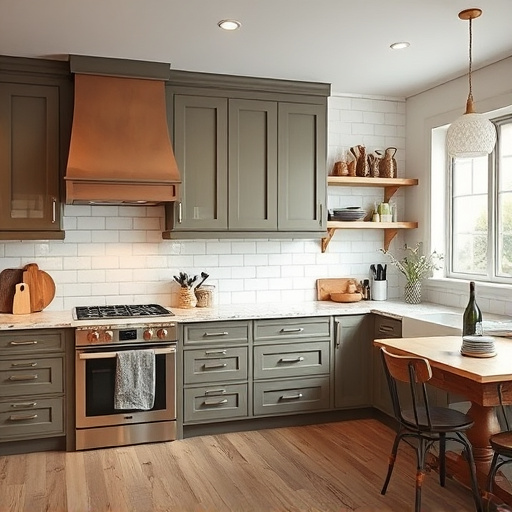
Staying organized is key to successful kitchen renovations, ensuring projects stay on track and within budget. A comprehensive project management system should be established from the outset, with clear goals and timelines defined. This involves breaking down the renovation into manageable tasks, assigning responsibilities, and setting deadlines for each stage. Regularly updating a project plan and communicating it to all involved parties—from contractors to clients—is essential.
Managing potential delays is an integral part of this process. By forecasting possible obstacles and creating contingency plans, renovation teams can adapt quickly when unexpected issues arise. This might include having backup suppliers for materials, scheduling buffer time between tasks, or employing flexible labor resources. Effective communication and regular progress meetings can also help mitigate delays by allowing for early identification of problems and collaborative problem-solving.
Common Pitfalls to Avoid for Seamless Renovations
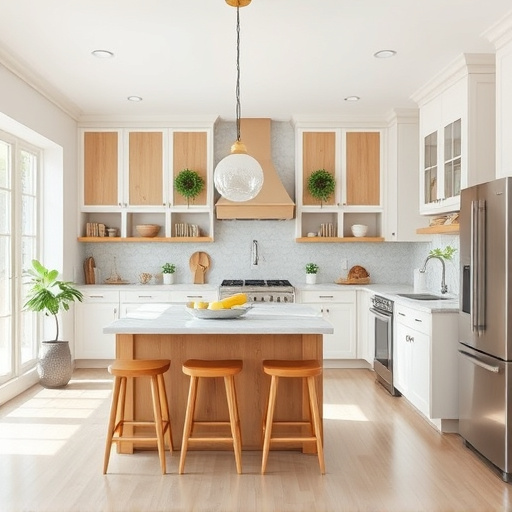
Renovating can be an exciting, yet stressful process, especially for those tackling it for the first time. To ensure your kitchen renovations go smoothly, it’s crucial to steer clear of common pitfalls that often lead to delays and budget blowouts. One of the biggest mistakes homeowners make is underestimating the scope of work involved. Kitchen renovations often require more time and resources than anticipated due to unforeseen challenges like hidden structural issues or the need for permits.
Another pitfall is failing to properly plan and communicate with your renovation team. Misunderstandings about timelines, materials, and design choices can cause delays and conflicts. Clear communication, detailed plans, and setting realistic expectations are key to avoiding these headaches. Prioritizing flexibility in your schedule will also help accommodate unexpected situations, ensuring your kitchen renovation project stays on track without unnecessary stress.
Renovating a kitchen is an exciting yet demanding process. By grasping the essential components of project planning, utilizing appropriate tools and resources, staying organized, and steering clear of common pitfalls, you can ensure your kitchen renovations proceed smoothly. Remember, meticulous preparation and timely execution are key to achieving a beautiful, functional space that meets your needs and enhances your lifestyle.
